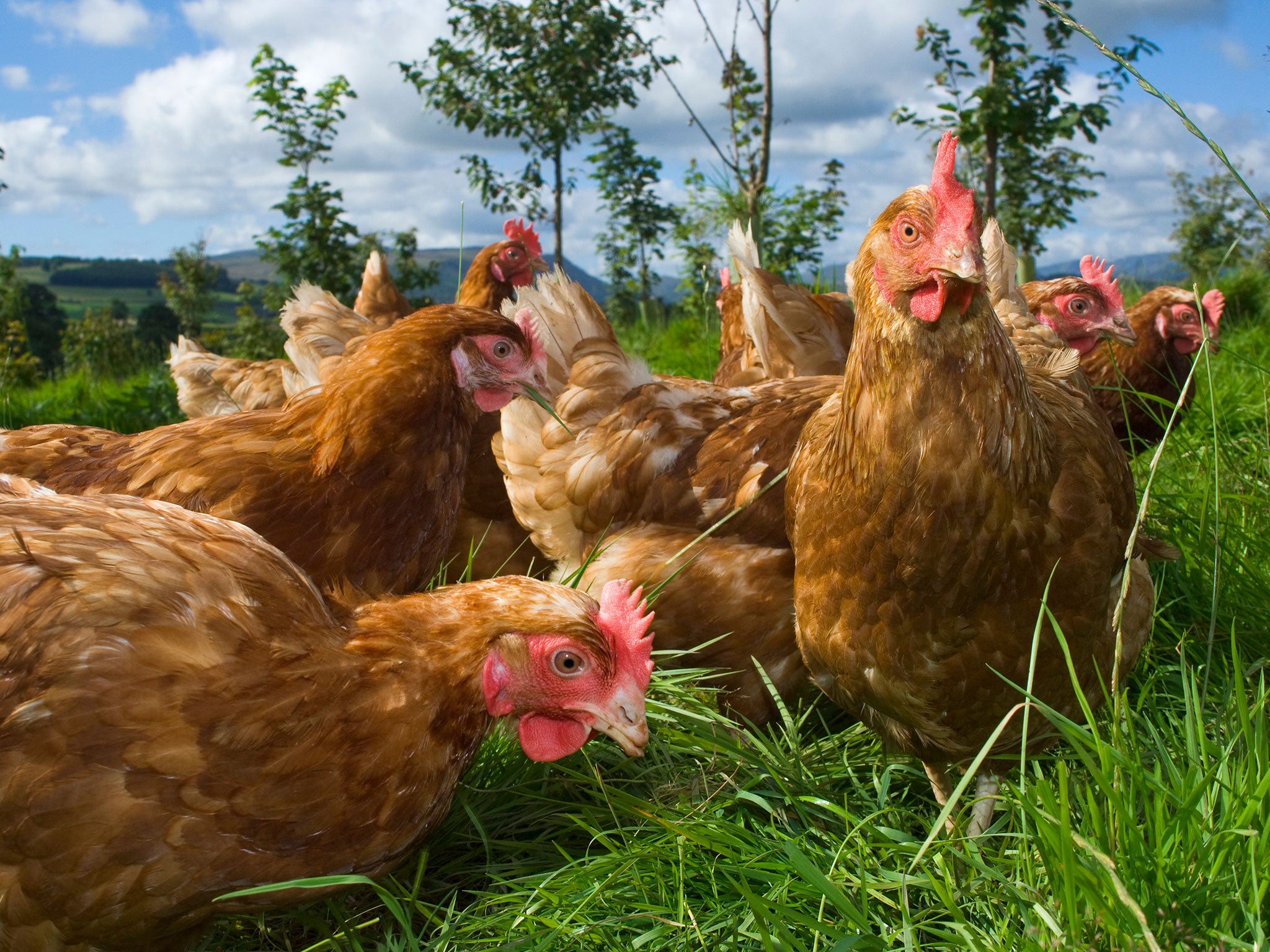Free-range chickens carry more parasites, study says
Researchers find 'backyard' chickens enjoy much better life but are vulnerable to wider range of ticks, mites and lice

Your support helps us to tell the story
From reproductive rights to climate change to Big Tech, The Independent is on the ground when the story is developing. Whether it's investigating the financials of Elon Musk's pro-Trump PAC or producing our latest documentary, 'The A Word', which shines a light on the American women fighting for reproductive rights, we know how important it is to parse out the facts from the messaging.
At such a critical moment in US history, we need reporters on the ground. Your donation allows us to keep sending journalists to speak to both sides of the story.
The Independent is trusted by Americans across the entire political spectrum. And unlike many other quality news outlets, we choose not to lock Americans out of our reporting and analysis with paywalls. We believe quality journalism should be available to everyone, paid for by those who can afford it.
Your support makes all the difference.Free-range chickens may be tastier and more ethical than birds reared on battery farms, but they also carry more parasites, according to a new study.
Researchers from the University of California found that “backyard” chickens may generally enjoy a much better life than those on commercial poultry farms but are vulnerable to a wider range of ticks, mites and lice.
Scratching around in the dirt exposures them to more parasites such as the northern fowl mite, the scaly leg mite and the chicken red mite, than they would encounter if they lived in a cage, the research has found.
Commercial poultry cages also contain far fewer crevices that might harbour ticks or bed bugs.
“Some of the perks might also increase the birds’ availability to parasites,” according to Amy Murillo the co-author of the report which is published in the Journal of Medical Entomology.
Most of the time the parasites inflict only a low level of discomfort on the chickens although they can cause more serious problems. But experts say the parasites don’t pose a risk to human health.
Join our commenting forum
Join thought-provoking conversations, follow other Independent readers and see their replies
Comments